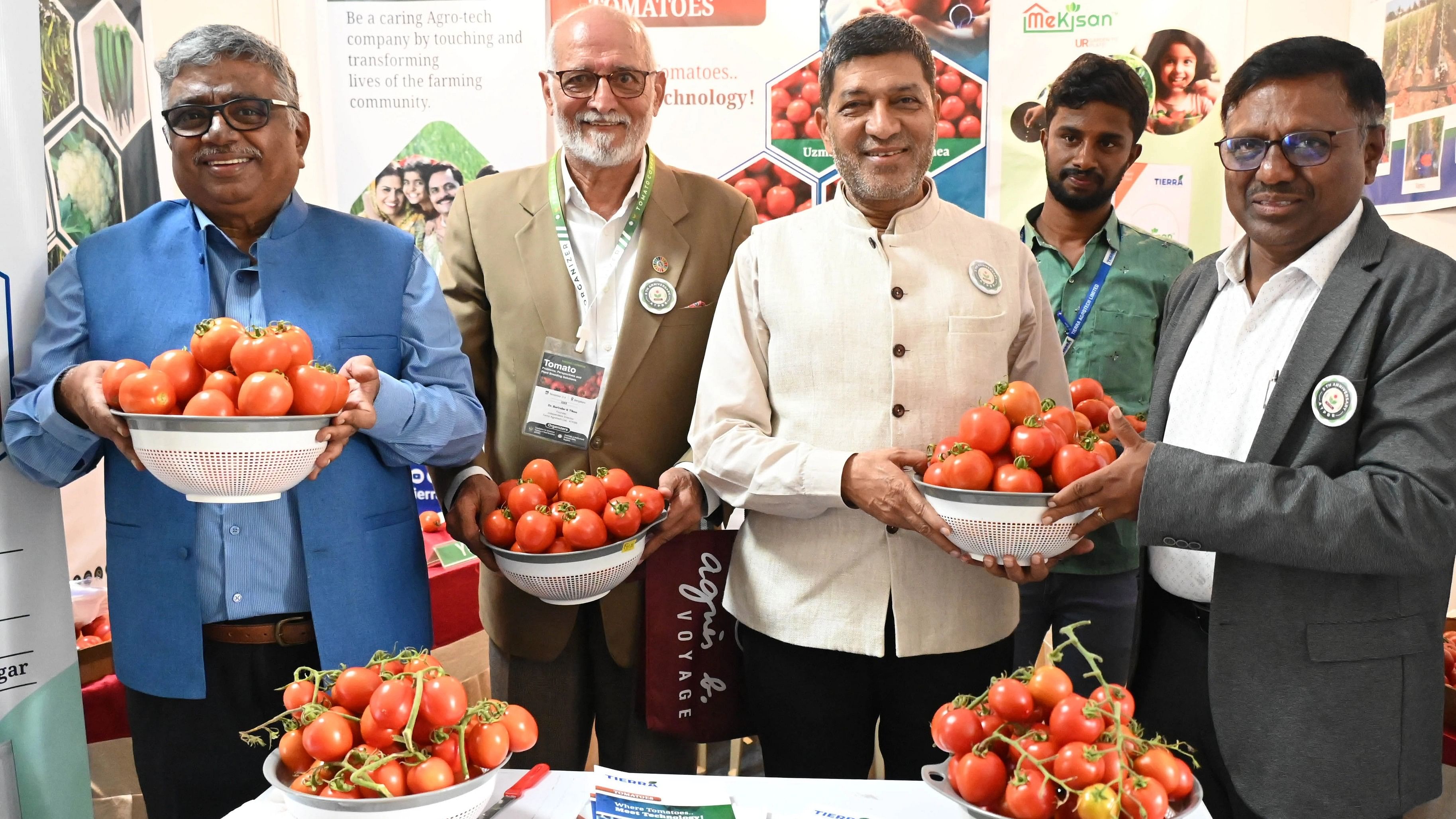
Experts call for increased investment in tomato cultivation at the national conference at the GKVK campus in Bengaluru on Friday.
Credit: DH Photo/ B K Janardhan
Bengaluru: Innovations such as vertical farming, protected cultivation, soilless culture, applications of genomics, and virus resistance are poised to advance research in tomato cultivation,” said N K Krishna Kumar, former Deputy Director General (Horticulture) of ICAR, New Delhi.
He was speaking at the national conference on ‘Tomato: Problems, Perspectives, and Plant Breeding Solutions’, which was organised by the Foundation for Advanced Training in Plant Breeding in collaboration with the University of Horticultural Sciences (UHS), Bagalkot, and held at Gandhi Krishi Vigyana Kendra (GKVK) campus in the city on Friday.
Dr Kumar highlighted the importance of reducing imports and initiating serious discussions to ensure the food safety and nutritional quality of crops. He expressed concern over the government’s failure to implement stringent and urgent measures to prevent plant diseases.
“The bio-security bill has been pending in Parliament for the last 14 years. As commerce and industry expand and we deal with numerous commodities, we must truly move in the right direction—these are some matters that are troubling,” he said.
Dr Maheswarappa H P, Director of Research at UHS, shed light on the mismatch between the supply and demand of tomatoes and the resulting price volatility in the country, also pointing out the deficiencies in tomato cultivation and distribution channels.
“We lack value chains in processing, market intelligence, and farmer extension services. We plan to address these issues, devising solutions and a strategy for enhancing the tomato sector in the nation,” he said.
Dr Ashok Dalwai, CEO, National Rainfed Area Authority, Ministry of Agriculture and Farmer Welfare, Government of India, emphasised the urgency of adopting an innovative, real-time approach to forecast tomato demand and prices to stabilise market fluctuations and support farmers.